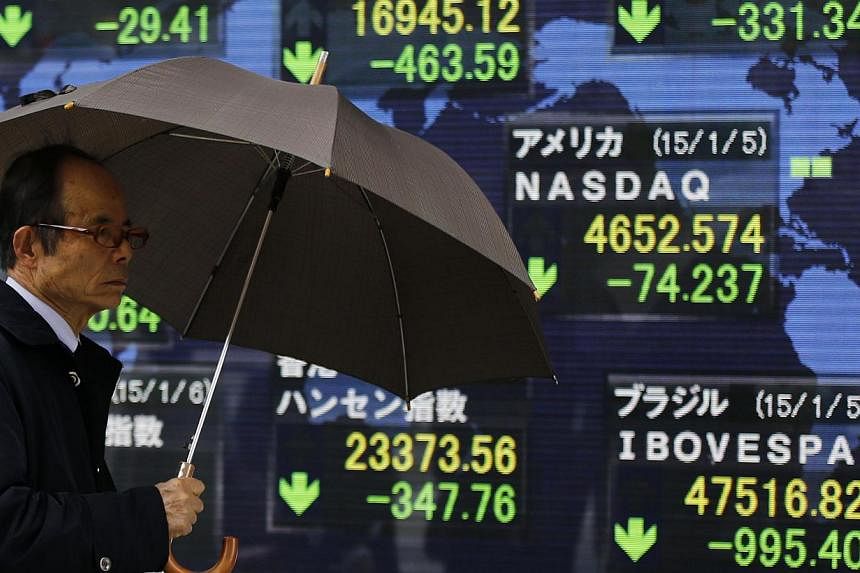TOKYO (Reuters) - Asian and U.S. stock futures and the euro tumbled in early Asian trade on Tuesday after talks between Greece and euro zone finance ministers broke down when Athens rejected a proposal to request a six-month extension of its international bailout programme.
U.S. stock futures fell to 2,082, about 0.8 per cent below its levels on Monday just before the news of euro zone finance ministers' meeting hit the wire.
Australian shares slumped 0.6 per cent, dragging down MSCI's broadest index of Asia-Pacific shares outside Japan 0.2 per cent. The Nikkei futures also pointed to a lower open for Japanese stocks.
The euro dipped to US$1.1345 from Monday's high of US$1.14295, though the currency kept some distance from last week's low of US$1.1270 and its 11-year trough of US$1.1098 hit on Jan. 26.
Dutch Finance Minister Jeroen Dijsselbloem, who chaired the meeting, said Athens had until Friday to request an extension, otherwise the bailout would expire at the end of the month.
Without support from creditors, the Greek government and banks would face a looming euro cash crunch, possibly opening the way for Greece to become the first country to ditch the common currency altogether and re-introduce its own currency.
Still, markets generally assume a compromise would eventually be reached given the potentially painful consequence of a Greek exit from the euro. "The market had been a bit optimistic about an agreement so it was a bit of a surprise," said Kyosuke Suzuki, director of forex at Societe Generale. "But from the past experience during the euro zone debt crisis, the market is also accustomed to negotiations dragging on until the very last minutes. So while the tail risk appears to be rising, there is no panic in the market," he added.
Earlier on Monday, global shares hit their highest since September on optimism over the Greek debt talks, with the MSCI all-country world stocks index touching its highest since Sept. 22 U.S. financial markets were closed on Monday for a public holiday.

